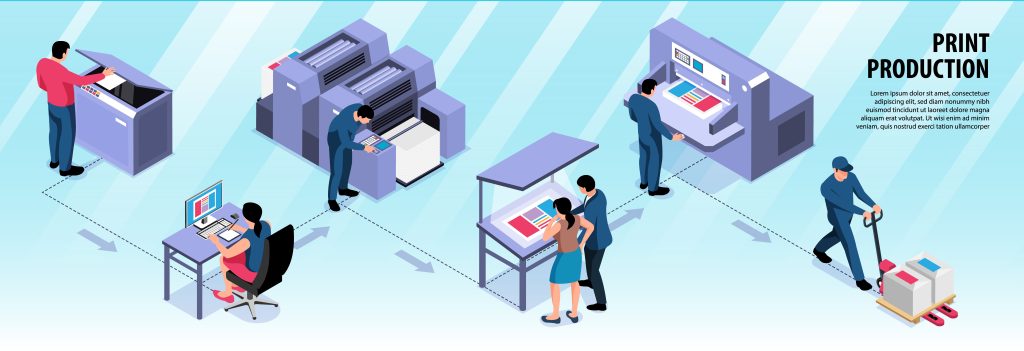Direct Mail: An Old-School Lead Generation That Still Works
Introduction
In today’s digital era, direct mail may seem like a relic of the past. However, for real estate agents and brokers, this traditional marketing strategy remains a highly effective tool. Direct mail offers a personal touch and physical presence that digital marketing often lacks. This guide aims to highlight the enduring effectiveness of direct mail and provide actionable strategies to incorporate it into your marketing efforts. By mastering direct mail, real estate professionals can enhance their lead generation efforts and drive business growth.
Understanding Direct Mail Marketing

A. What is Direct Mail?
Direct mail involves sending physical promotional materials directly to a targeted audience’s mailbox. Unlike digital marketing, which often lacks a personal touch, direct mail provides a tangible experience that can leave a lasting impression.
B. Why Direct Mail is Still Effective
| Reason | Description |
|---|---|
| Tangibility and Personal Touch | Physical mail feels more personal and memorable than digital ads. |
| High Engagement Rates | Mail is often opened and read more thoroughly, leading to higher engagement. |
| Targeted Marketing | Direct mail allows precise targeting, ensuring your message reaches the right audience. |
Benefits of Direct Mail in Lead Generation
A. Tangible and Memorable
Physical mail is often more memorable than digital communications. Recipients are more likely to recall a well-designed postcard or letter than an email.
- Examples of Successful Campaigns:
- A real estate agent sends personalized postcards to homeowners in a specific neighborhood highlighting recent sales and offering free home evaluations.
- A broker mails a well-designed brochure showcasing luxury properties to affluent neighborhoods.
B. High Response Rates
Statistics show that direct mail can have higher response rates compared to some digital marketing methods. According to the Data & Marketing Association (DMA), the response rate for direct mail is 4.9% for prospect lists and 9% for house lists.
C. Personalization and Customization
Direct mail allows for high levels of personalization, making your message more relevant to the recipient.
- Tips for Customization:
- Use personalized salutations.
- Include relevant property listings based on the recipient’s location.
- Tailor offers and messages to the recipient’s needs.
Crafting an Effective Direct Mail Campaign
A. Identifying Your Target Audience
Knowing your audience is crucial. Real estate agents should segment their audience based on factors such as:
| Segment | Criteria |
|---|---|
| First-time Homebuyers | Age, rental status, income level. |
| Sellers Looking to Upgrade | Homeownership status, neighborhood, family size. |
| Investors | Investment history, interest in rental properties, financial status. |
B. Developing Compelling Content
- Headline and Value Proposition:
- Ensure your headline grabs attention and communicates the value proposition effectively.
- Tailored Message:
- Focus on addressing the specific needs and pain points of your audience.
- Clear Call-to-Action (CTA):
- Include a compelling CTA encouraging recipients to take the next step, such as visiting your website or contacting you for more information.
C. Design and Format
| Format | Description |
|---|---|
| Postcards | Simple and cost-effective, often used for brief announcements or promotions. |
| Brochures | More detailed, ideal for showcasing properties and services. |
| Letters | Personal and formal, suitable for personalized offers and detailed information. |
- Best Practices for Design:
- Use high-quality images and clear, readable fonts.
- Ensure the layout guides the reader’s eye through the content.
- Maintain branding consistency with colors and logos.
Implementing Your Direct Mail Campaign

A. Printing and Production
- Selecting a Printing Service:
- Choose a reliable service that can handle large volumes and offers quality options.
- Quality Considerations:
- Use high-quality paper and printing to make a good impression.
B. Timing and Frequency
| Timing | Description |
|---|---|
| Optimal Sending Times | Determine the best time to send mail based on your audience’s availability. |
| Campaign Frequency | Plan the frequency of mailings for optimal engagement without overwhelming recipients. |
C. Mailing List Management
| Source | Description |
|---|---|
| Existing Clients | Build a list from satisfied clients and people who have shown interest previously. |
| Purchased Lists | Obtain targeted mailing lists from reputable providers. |
Measuring and Analyzing Success

A. Tracking Responses
| Method | Description |
|---|---|
| Unique Codes | Include unique codes to track responses to specific mail pieces. |
| Personalized URLs (PURLs) | Direct recipients to personalized landing pages to monitor engagement. |
B. Analyzing ROI
- Calculate ROI:
- Compare the revenue generated from the direct mail campaign to the total cost.
- Adjust Future Campaigns:
- Use insights from previous campaigns to refine future strategies.
Integrating Direct Mail with Digital Marketing

A. Creating a Multi-Channel Strategy
Combining direct mail with digital marketing can amplify your reach and effectiveness.
- Benefits of Integration:
- Increased visibility across multiple channels.
- More touchpoints for engaging potential clients.
B. Using Digital Tools to Enhance Direct Mail
| Tool | Description |
|---|---|
| QR Codes | Include QR codes directing recipients to online content or offers. |
| Social Media | Follow up direct mail campaigns with social media engagement. |
| Email Follow-ups | Send personalized emails to recipients as a follow-up to the mailed content. |
Conclusion and Key Takeaway
Direct mail is a valuable tool that, when used correctly, can complement digital strategies and enhance lead generation efforts. Consistency and quality are crucial; regularly providing tailored, high-quality content can significantly improve your lead generation and overall business growth.





